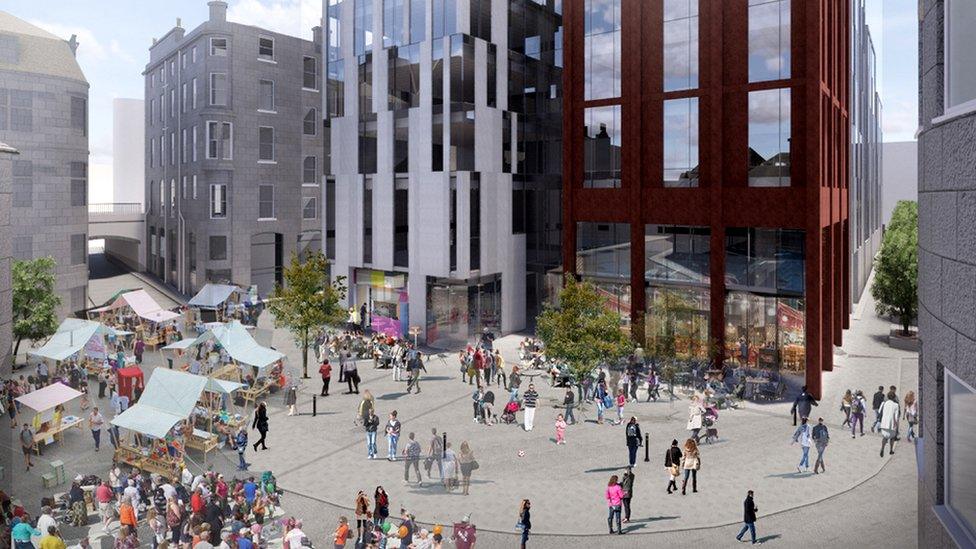The town battling the High Street blues
- Published
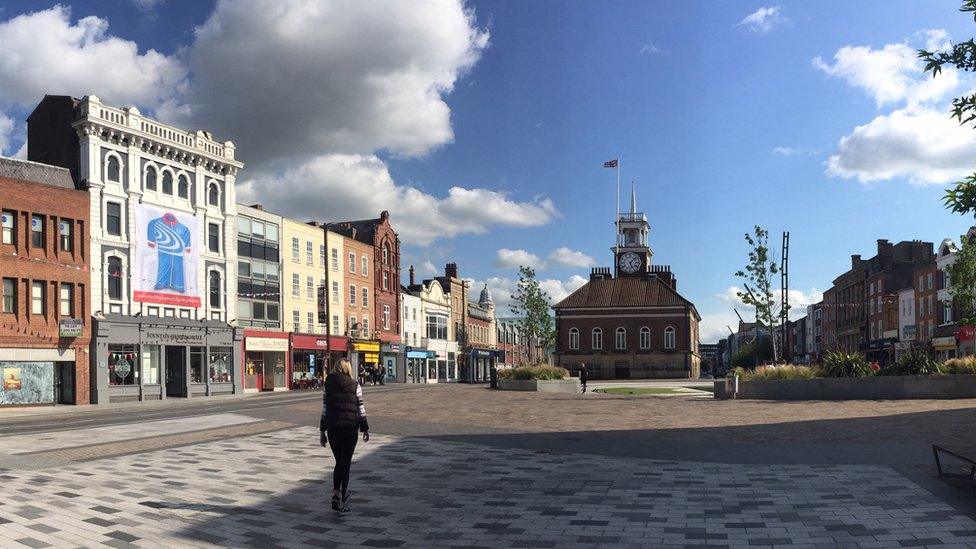
Stockton-on-Tees has invested in its town centre, but still shops keep closing
In a shopping arcade in Stockton-on-Tees, the loudspeakers are playing Empire State of Mind. "Bright lights will inspire you," goes the chorus, but the canned music isn't inspiring all the shoppers.
"It's getting like a ghost town really," one says. "They've made it nice, the area, but the shops are going one by one."
In 2018, data from the Centre for Retail Research found more than 2,500 mostly medium or large retail businesses failed, and the organisation's Joshua Bamfield now expects 2019 to be worse.
Stockton-On-Tees has also faced losses.
"Marks & Spencer, they closed and now Debenhams is going to close," Labour's Nigel Cooke, the borough council cabinet member for regeneration and housing, told Radio 4's World At One.
Stockton's response to High Street closures has been to try to "reinvent" the High Street.
"A High Street like this probably has too many shops," Mr Cooke says. "Town centres have to be something else and they have to be a place where people come for an experience."
Draw the crowds
The town's approach to fighting High Street decline has been influential. A picture by a local artist is on the cover of the second report by retail tsar Bill Grimsey.
"I like to think we inspired Bill Grimsey," Mr Cooke says as he explains the council's approach to regeneration.
The town's strategy aims to keep people visiting the town centre.
To that end, the town promotes festivals and markets to draw in the crowds.
Last year's Stockton International Riverside Festival attracted 65,000 visitors, the council estimates, while more quirky attractions include the Stockton Flyer, a steampunk-style sculpture that rises from a stone plinth, clanking and whistling, every lunchtime.
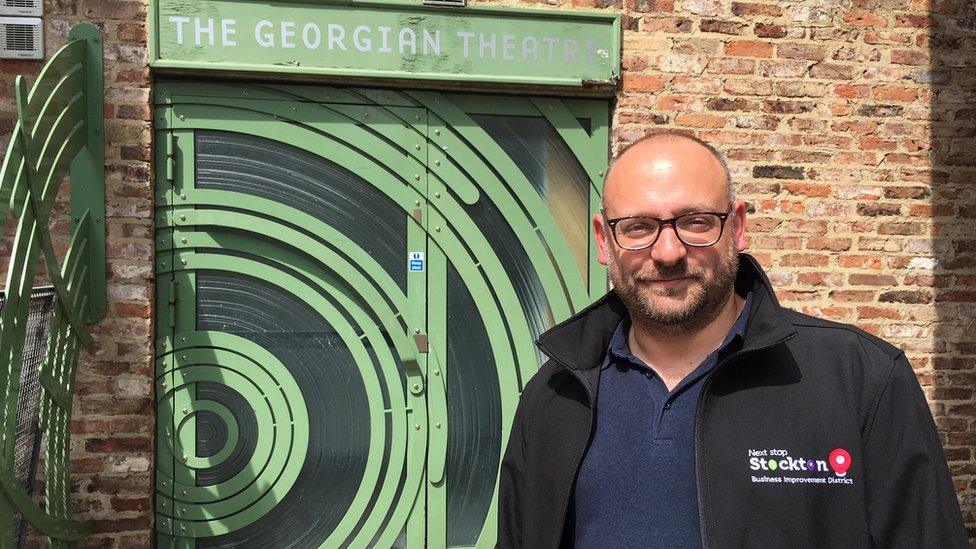
Jason Maxwell runs a business-backed not-for-profit body that aims to get visitors returning "again and again" to Stockton
Regeneration aggravation
Near to the closing Debenhams, Mr Cooke points out a controversial and expensive effort to draw the public to the town, the regeneration of the Grade 2 listed art deco structure of The Globe.
Refurbishing the 3,000-capacity venue, which in its heyday hosted performances by the Beatles and the Rolling Stones, was originally expected to cost £4m. Its current budget is £26.5m.
The council also borrowed heavily to finance the building of a new hotel overlooking the river.
Jason Maxwell manages the Stockton Business Improvement District, a not-for-profit company funded by local firms, with the aim of "creating an environment that visitors want to return to again and again". That means hosting events and attractions, exploiting the town's rich heritage, reducing anti-social behaviour and supporting independent businesses.
Jason highlights Silver Street, home to independent stores including Drake, an award-winning independent local bookshop. Before heading down, we see the Georgian Theatre and Lucifers, a local micro-pub, part of the night economy the group is keen to promote.
"Perception becomes reality," Mr Maxwell says over a pint of locally brewed beer.
"It's really important that when people say, 'There's nothing here,' that we say, 'Actually, there is.'"
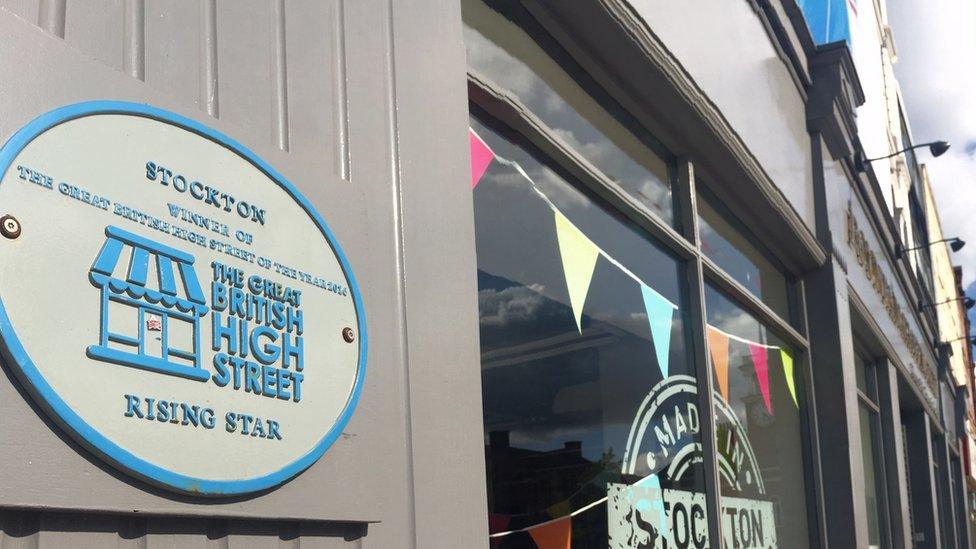
Stockton's regeneration push has helped it win awards - but shops still closed
Pop-ups sink or swim
There's also the Fountain Shopping Mall, a so-called "enterprise arcade" - in reality, a large space filled with stalls where nascent businesses can learn and develop.
Since it began in 2011, the council says, there have been 92 start-ups, 30 of which have progressed enough to move into the town centre, of which 10 are still trading.
On a bright sunny day, Stockton's potential is easy to see. There's plenty of "heritage", handsome historic buildings and a riverfront for the town to exploit. But this town that saw the dawn of the steam railways hasn't yet completed an industrial revolution in retail.
In 2017, Local Data Company figures showed that Stockton bucked trends in the North East, with more shops opening than closing. But only one year on, in 2018, the situation deteriorated, according to LDC figures, with a net loss of six occupied units.
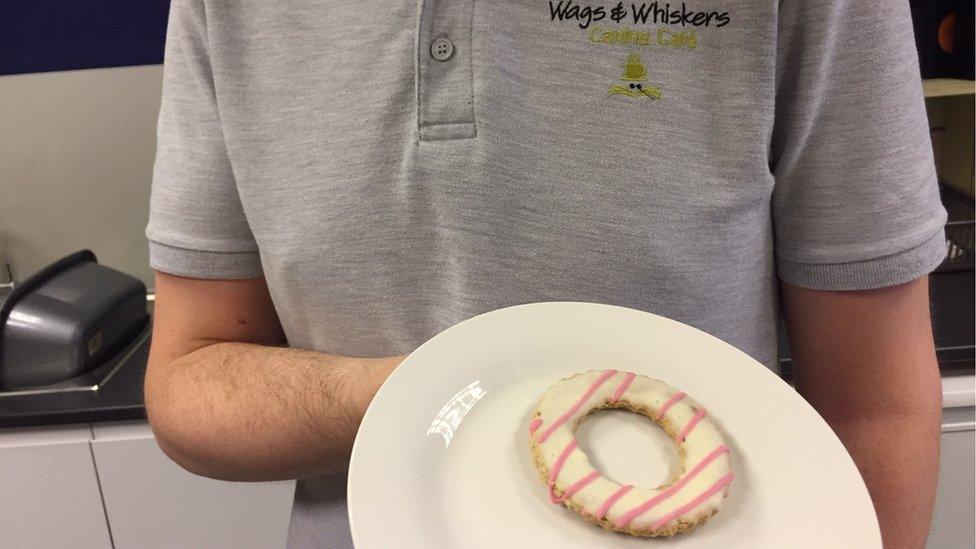
"Dognuts" for sale at an independent shop in Stockton
'You can't manage decline'
There's more the council would like to do. At another independent store, Wags and Whiskers Pet Boutique and Canine Café - which sells "dognuts" canine treats among other things - the owner told me his biggest challenges were high rates and rents.
Mr Cooke said the council would like more control over rates. It would also like changes that make it easier to track down the owners of vacant properties, he said.
News that the UK economy contracted 0.2% last quarter will only add to the difficulties. Storm clouds also gather on the horizon in the form of the economic risks associated with a no-deal Brexit.
But Mr Cooke isn't giving up, "You can't manage decline, you've got to fight back," he said.
- Published16 May 2019
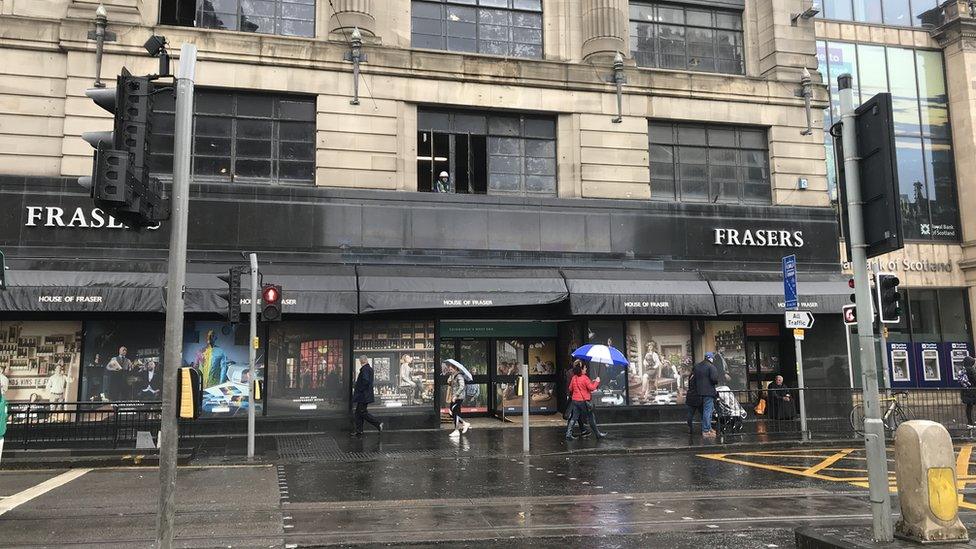
- Published24 April 2018
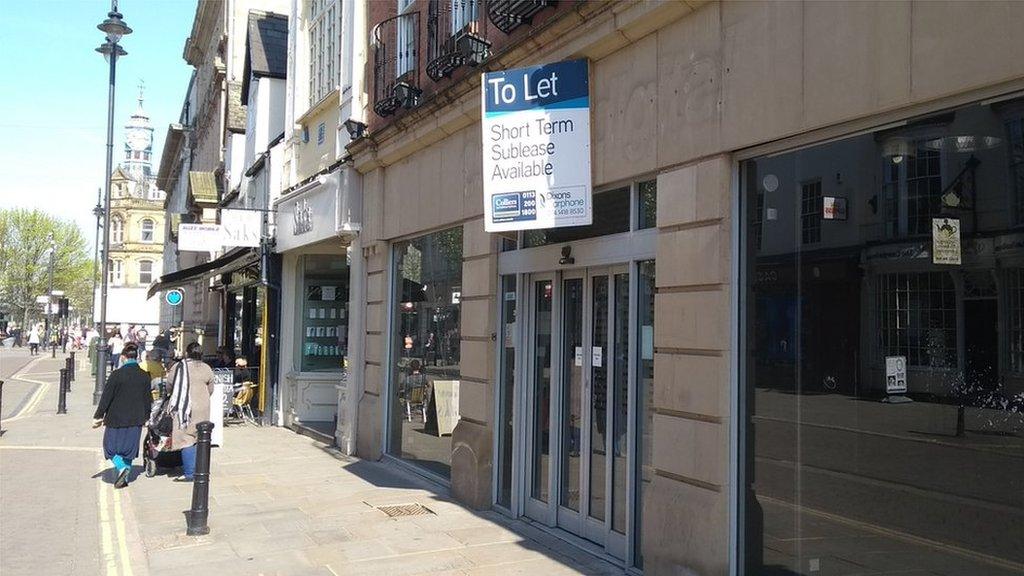
- Published26 February 2019
